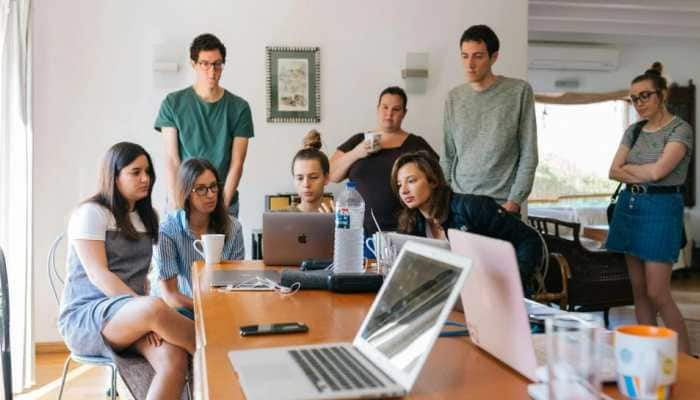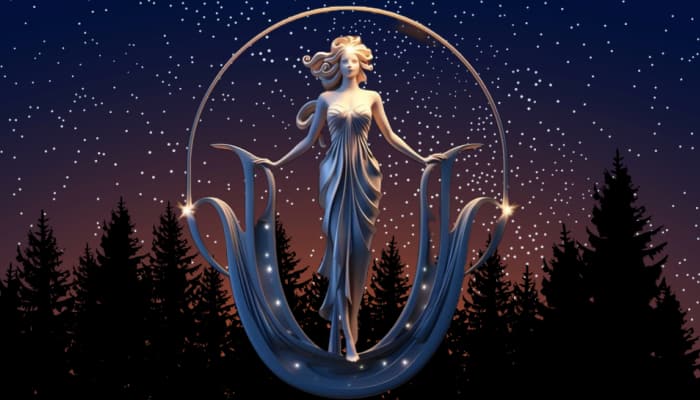Russians dissatisfied with Putin as a person
There is a growing awareness in Russia that the current regime can`t lead.
Trending Photos
)
 As Russians voted in Parliamentary polls on Sunday, exit polls showed Vladimir Putin`s ruling party, United Russia has suffered a big drop in support after years of dominance. The polls, according to President Dmitry Medvedev, were "one of the highest manifestations of democracy”. However, voters signalled their growing unease with Putin’s domination of Russian politics before a planned return to the presidency next year.
In an exclusive interview with Kamna Arora of Zeenews.com held prior to the polls, political scientist Eugene Huskey discussed the Russian elections and the declining popularity of Vladimir Putin.
Eugene Huskey is William R Kenan, Jr Professor of Political Science and Russian Studies at Stetson University in DeLand, Florida.
Kamna: What are the reasons of the eroding popularity of Vladimir Putin`s United Russia party?
Huskey: It is too early to give a definitive answer to this question, but it appears that the recent decline in the popularity of both United Russia and its founder and patron, Vladimir Putin, is tied to a growing public awareness that the current regime has exhausted its potential to lead the country. When Putin came to power in 2000, Russia was barely governable. Putin launched a series of reforms designed to centralise control by limiting the power of the regions, the Parliament, and the oligarchs. Despite the excesses of this campaign, it did help stabilise Russia, as did, of course, the dramatic rise in the price of oil and gas, on which the Russian economy is based.
We are now at a very different moment, and yet Putin seems to be offering only more of the same -- with the prospect, under the new six-year presidential terms -- that the country faces 12 more years of a leader and a ruling party that have become stale. Putin himself recognised the staleness of the United Russia party months ago when he toyed with the idea of creating a new popular front to contest the election, but for whatever reason he failed to follow through with this initiative.
Kamna: Putin was of late booed by fans at a mixed martial arts fight. How do you read this? What does the incident signify in Russia politics?
Huskey: This incident must have come as an enormous shock to Putin and his handlers. Although they recognised that his popularity was gradually declining, they would never have placed him in this position, on live television, if there had been inkling that the crowd would boo the "national leader”. I read this event in two ways: first, to use the ideas of Robert Tucker, as anger against the intrusion of "official Russia" into a preserve of "popular Russia”. Russians go to fights like this, in part, to escape their bosses and the hierarchies of authority in which they are imbedded, and then the big boss shows up. But it was also no doubt an expression of dissatisfaction with Putin as a person. It came shortly after Putin`s announcement that he would seek to return to the presidency and that he and Medvedev had agreed to this arrangement years earlier.
That latter admission exposed the cynical nature of leadership politics in Russia and suggested that the supposed tensions between the approaches of Medvedev and Putin, played out at times in the press, were little more than a ruse.
The boos were the reaction of a public that was used to being manipulated by leaders, but at least in the past the leaders didn`t rub this manipulation in their faces as Putin has done in recent weeks.
Kamna: How significant are the upcoming Parliamentary Elections for the Kremlin?
Huskey: Although the Kremlin can manage Parliament if United Russia receives less than a majority of the seats -- several of the other groups are really "pocket parties" rather than genuine opposition parties -- it will be seen by all as a defeat for Putin if United Russia does not win at least 50 percent of the places in Parliament. Because the Parliamentary Elections are viewed as a dry run for the Presidential Elections in Russia, which will occur in March 2012, any sizable decline in support for United Russia could complicate Putin`s Presidential Election campaign. We must remember, though, that the really important contest is not the Parliamentary Elections but the behind-the-scenes maneuvering for positions in Putin’s executive office. In a political system like Russia’s, where the executive is virtually unchecked, it’s the senior staffers who are the key players besides Putin. The Parliament is at the moment little more than window-dressing. Only a dramatic rejection of United Russia by voters, coupled with a willingness of the authorities to count the votes fairly, would transform the role of the Parliament.
Kamna: Will the new Duma pose problems for United Russia party?
Huskey: Although weakened, United Russia comes into the December 04 Parliamentary Elections with numerous advantages. The opposition is itself weak, in good measure because the regime has not allowed its most vigorous opponents to form political parties. The playing field for the campaign is far from level, with United Russia enjoying the advantages of a favorable press and "administrative resources”, which in Russia means the mobilisation of state officials behind the United Russia effort. Finally, officials with close ties to the Kremlin will tally the votes, so a victory can be manufactured. However, the regime will be reluctant to engage in massive voter fraud lest it trigger a color revolution of the sort that one witnessed in other post-communist countries in the last decade. This means that United Russia may not continue as a "hegemonic party”, with the overwhelming share of the seats, which it received in the 2007 election.
Kamna: How important is Internet in the changing demography of Russian society in deciding Russian polls?
Huskey: Whether the crowd at the martial arts fight was the typical demographic of Internet users in Russia isn`t clear, but it is certainly the case that now in Russia two parallel, and competing, sources of information about politics exist. The first, the broadcast media and most of the press, is tightly controlled by the regime. But increasing numbers of younger and urban Russians are turning to the Internet for information about political developments, information that is often at odds with the official discourse. As the Internet grows in popularity, elections will increasingly be contested in cyber space, though at present traditional media still dominate coverage of the political campaign. The Internet, therefore, poses a long-term problem for an authoritarian leadership such as that wielded by Putin and those around him. As one Russian commentator, Yulia Latynina, noted recently, either the regime will destroy the Internet or the Internet will destroy the regime.
As Russians voted in Parliamentary polls on Sunday, exit polls showed Vladimir Putin`s ruling party, United Russia has suffered a big drop in support after years of dominance. The polls, according to President Dmitry Medvedev, were "one of the highest manifestations of democracy”. However, voters signalled their growing unease with Putin’s domination of Russian politics before a planned return to the presidency next year.
In an exclusive interview with Kamna Arora of Zeenews.com held prior to the polls, political scientist Eugene Huskey discussed the Russian elections and the declining popularity of Vladimir Putin.
Eugene Huskey is William R Kenan, Jr Professor of Political Science and Russian Studies at Stetson University in DeLand, Florida.
Kamna: What are the reasons of the eroding popularity of Vladimir Putin`s United Russia party?
Huskey: It is too early to give a definitive answer to this question, but it appears that the recent decline in the popularity of both United Russia and its founder and patron, Vladimir Putin, is tied to a growing public awareness that the current regime has exhausted its potential to lead the country. When Putin came to power in 2000, Russia was barely governable. Putin launched a series of reforms designed to centralise control by limiting the power of the regions, the Parliament, and the oligarchs. Despite the excesses of this campaign, it did help stabilise Russia, as did, of course, the dramatic rise in the price of oil and gas, on which the Russian economy is based.
We are now at a very different moment, and yet Putin seems to be offering only more of the same -- with the prospect, under the new six-year presidential terms -- that the country faces 12 more years of a leader and a ruling party that have become stale. Putin himself recognised the staleness of the United Russia party months ago when he toyed with the idea of creating a new popular front to contest the election, but for whatever reason he failed to follow through with this initiative.
Kamna: Putin was of late booed by fans at a mixed martial arts fight. How do you read this? What does the incident signify in Russia politics?
Huskey: This incident must have come as an enormous shock to Putin and his handlers. Although they recognised that his popularity was gradually declining, they would never have placed him in this position, on live television, if there had been inkling that the crowd would boo the "national leader”. I read this event in two ways: first, to use the ideas of Robert Tucker, as anger against the intrusion of "official Russia" into a preserve of "popular Russia”. Russians go to fights like this, in part, to escape their bosses and the hierarchies of authority in which they are imbedded, and then the big boss shows up. But it was also no doubt an expression of dissatisfaction with Putin as a person. It came shortly after Putin`s announcement that he would seek to return to the presidency and that he and Medvedev had agreed to this arrangement years earlier.
That latter admission exposed the cynical nature of leadership politics in Russia and suggested that the supposed tensions between the approaches of Medvedev and Putin, played out at times in the press, were little more than a ruse.
The boos were the reaction of a public that was used to being manipulated by leaders, but at least in the past the leaders didn`t rub this manipulation in their faces as Putin has done in recent weeks.
Kamna: How significant are the upcoming Parliamentary Elections for the Kremlin?
Huskey: Although the Kremlin can manage Parliament if United Russia receives less than a majority of the seats -- several of the other groups are really "pocket parties" rather than genuine opposition parties -- it will be seen by all as a defeat for Putin if United Russia does not win at least 50 percent of the places in Parliament. Because the Parliamentary Elections are viewed as a dry run for the Presidential Elections in Russia, which will occur in March 2012, any sizable decline in support for United Russia could complicate Putin`s Presidential Election campaign. We must remember, though, that the really important contest is not the Parliamentary Elections but the behind-the-scenes maneuvering for positions in Putin’s executive office. In a political system like Russia’s, where the executive is virtually unchecked, it’s the senior staffers who are the key players besides Putin. The Parliament is at the moment little more than window-dressing. Only a dramatic rejection of United Russia by voters, coupled with a willingness of the authorities to count the votes fairly, would transform the role of the Parliament.
Kamna: Will the new Duma pose problems for United Russia party?
Huskey: Although weakened, United Russia comes into the December 04 Parliamentary Elections with numerous advantages. The opposition is itself weak, in good measure because the regime has not allowed its most vigorous opponents to form political parties. The playing field for the campaign is far from level, with United Russia enjoying the advantages of a favorable press and "administrative resources”, which in Russia means the mobilisation of state officials behind the United Russia effort. Finally, officials with close ties to the Kremlin will tally the votes, so a victory can be manufactured. However, the regime will be reluctant to engage in massive voter fraud lest it trigger a color revolution of the sort that one witnessed in other post-communist countries in the last decade. This means that United Russia may not continue as a "hegemonic party”, with the overwhelming share of the seats, which it received in the 2007 election.
Kamna: How important is Internet in the changing demography of Russian society in deciding Russian polls?
Huskey: Whether the crowd at the martial arts fight was the typical demographic of Internet users in Russia isn`t clear, but it is certainly the case that now in Russia two parallel, and competing, sources of information about politics exist. The first, the broadcast media and most of the press, is tightly controlled by the regime. But increasing numbers of younger and urban Russians are turning to the Internet for information about political developments, information that is often at odds with the official discourse. As the Internet grows in popularity, elections will increasingly be contested in cyber space, though at present traditional media still dominate coverage of the political campaign. The Internet, therefore, poses a long-term problem for an authoritarian leadership such as that wielded by Putin and those around him. As one Russian commentator, Yulia Latynina, noted recently, either the regime will destroy the Internet or the Internet will destroy the regime.







)
)
)
)
)
)
)
)
)
)
